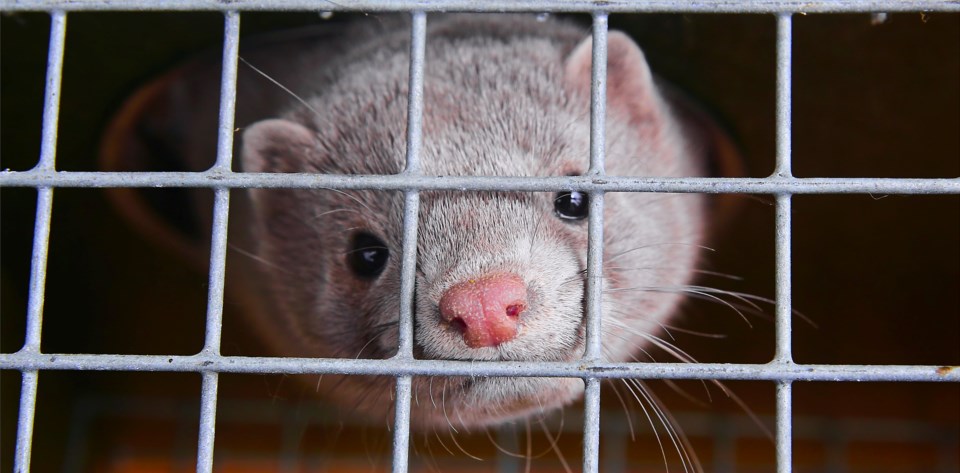Four B.C. mink farms have filed lawsuits in B.C Supreme Court alleging the province’s pandemic orders and 2021 decision to ban the industry were unlawful and caused economic damages.
Dargatz Mink Ranch, C&A Mink Ranch, Engebretson Fur Farm and Dogwood Fur Farm in notices of civil claim filed Nov. 3 and Nov. 6 name the Ministry of Agriculture and Food, provincial health officer Dr. Bonnie Henry and B.C. chief veterinarian Rayna Gunvaldsen.
“They knew that the decision was not related to animal health or public health as required under the legislative scheme, but rather that it was for political, social and public opinion or an otherwise improper purpose not related to the legislative scheme,” said the almost-identical claims.
The farmers said the government continued to meet with them through 2021 in meetings they believed were to find a way forward with issues facing the industry.
The lawsuits said it was “without warning and without consulting with mink fur farmers” that, on Nov. 5, 2021, Ministry of Agriculture and Ministry of Health officials, deputy provincial health officer Dr. Brian Emmerson, and Fraser Health Medical Officer Dr. Emily Newhouse announced the province’s decision to ban mink farming effective Nov. 26, 2021, with all activities to cease April 1, 2025.
“British Columbia is the only Canadian province to have banned mink fur farming,” the Dogwood case said.
“Conversely, Nova Scotia launched a vaccine program in 2021 for mink farmers in the province. Nova Scotia’s Agriculture Department offered approximately 54,000 doses of vaccine to mink farms in that province, the cost being split with the federal government,” the suits said. “The doses were administered in or around November and December 2021 to roughly 27,000 mink (approximately 70% of the province’s breeding herd and, at the time, approximately 50% of the breeding herd in the country as a whole), with each mink receiving two doses.”
The suits also pointed to Denmark, where roughly 1,100 farms were producing more than 17 million mink in a region about the size of Vancouver Island. A November 2020 decision ordered the cull of all farmed mink in the country.
“The decision was later found to have been unlawful,” the suits said. “Danish mink farmers are once again permitted to operate and fur farmers and mink farming adjacent businesses are being compensated for the losses incurred as a result.”
The B.C. ban cited “ongoing persistence of infected mink and workers at mink farms contracting SARS-CoV-2 from mink and transmitting on to broader human populations.”
It said the situation was a risk to public health.
The suits claim the ban caused economic and business losses, costs in winding down businesses and emotional pain and suffering.
They claim general, special and punitive damages.
A statement to Glacier Media from the Ministry of Agriculture and Food said “the mink farming ban is the subject of litigation that is currently before the court, and as such, we are unable to comment.”
All suits were filed by Morgan Camley and Mélanie Power, both lawyers with the Denton’s firm Vancouver office.


